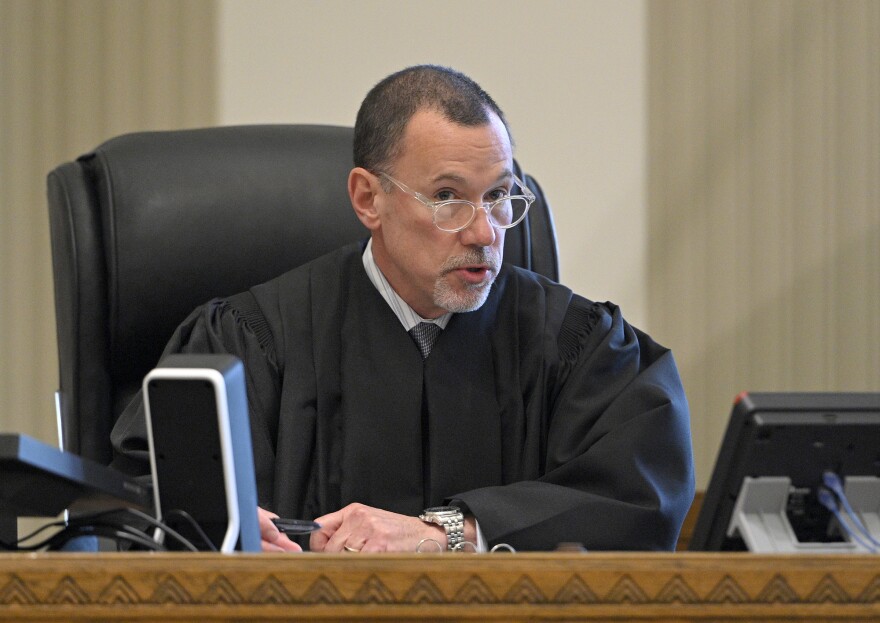Lawyers for Eric DeValkenaere argued that a judge reached several wrong conclusions when convicting the former Kansas City Police Department detective of the 2019 killing of Cameron Lamb.
Jackson County Judge Dale Youngs last year found DeValkenaere guilty of second-degree involuntary manslaughter and armed criminal action for shooting Lamb to death on private property. Youngs concluded after a trial – one in which DeValkenaere testified in his own defense – that the circumstances gave the detective no right to come on to private property without a warrant, much less use deadly force against Lamb.
DeValkenaere and another KCPD detective arrived at a house at the 4100 block of College Avenue on Dec. 3, 2019 where Lamb had arrived in a pickup truck following a vehicle and helicopter pursuit for several traffic violations. DeValkenaere fired shots at the pickup, later saying he believed Lamb had a gun and prepared to use it against the officers. Prosecutors argued the scene had been manipulated and a gun had been planted near Lamb, something DeValkenaere denied at trial.
Youngs sentenced DeValkenaere in March to serve six years in prison, but allowed the detective to remain free pending the outcome of an appeal.

Courts rarely find police officers guilty of using force, and it’s rarer still that officers face criminal consequences for killing Black victims. DeValkenaere’s conviction occurred the same year that a jury found Minneapolis police officer Derek Chauvin guilty of second-degree murder for the killing of George Floyd, whose death in 2020 sparked international protests and calls for reforming how police use force and treat Black communities.
DeValkenaere’s lawyers argued last month in a lengthy appeal filed with the Missouri Court of Appeals that their client’s conviction should have never happened. They said Youngs incorrectly concluded that the detectives could not come onto the property on College Avenue without probable cause to believe that Lamb had committed a felony.
The pursuit of Lamb occurred after he ran a red light, drove into oncoming traffic and exceeded the posted speed limit several times.
DeValkenaere’s lawyers argued that court precedent and federal law at the time allowed police to enter homes without warrants in some circumstances where they believed a misdemeanor crime had occurred. And the detectives’ observations of Lamb’s driving that day gave them probable cause to investigate and make an arrest.
Youngs decided that because the detectives came onto private property without a warrant or permission, their actions were unjustified and they became “initial aggressors” of a situation that had already de-escalated.
By the time Lamb slowly backed a pickup truck onto a driveway – about the moment DeValkenaere shot him – he had stopped committing the traffic offenses that initiated the pursuit. Youngs concluded that the detectives’ behavior resulted in a “gross deviation” from standards that an ordinary person would observe.

DeValkenare’s attorneys argued that Youngs incorrectly determined that the detectives trespassed, but even if they did, that did not stop DeValkenaere from using force to defend himself if he thought his or his fellow detective’s lives were at risk.
DeValkenaere’s lawyers said their client’s conviction should be reversed, or, at least the former detective receive a new trial.









